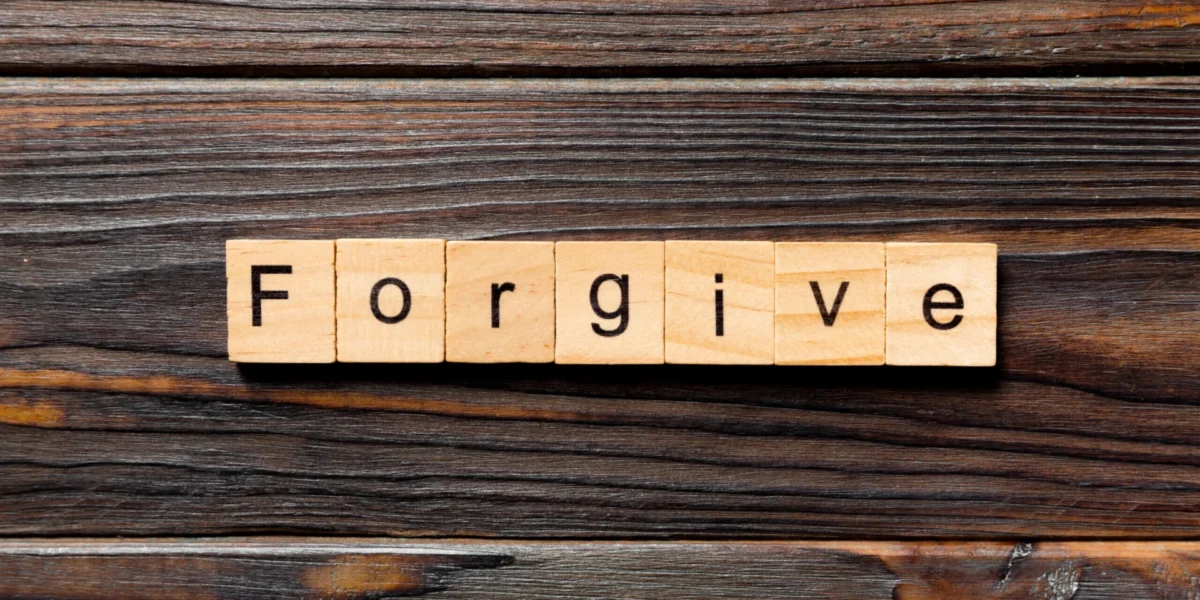Building Relationship Resilience: How Couples Grow Stronger Through Crisis

Forgiveness:
A New Year, A New Beginning
A New Year, A New Beginning
Letting Go Of Pain To Make Space For Peace
New Year’s is about fresh starts and new beginnings. This year, I want you to reflect: Is there anyone you haven’t forgiven? Is someone’s past offense still causing you pain? Do you feel resentment or even a desire for revenge? If so, this post is for you. My goal is to help you understand the benefits of forgiveness and give you practical tools to begin the process. Forgiveness is not about forgetting or excusing harm—it’s about freeing yourself from the weight of emotional suffering.
What Forgiveness Is—And What It Isn’t
Releasing Pain Doesn’t Mean Condoning The Offense
It’s a common misconception that forgiveness means saying what someone did was okay. That’s not true. You can forgive without minimizing the pain or restoring trust. In fact, many people forgive those who are unapologetic and unrepentant—not for the offender’s sake, but for their own healing. Forgiveness is ultimately a gift you give yourself. It breaks the emotional chain that ties you to the hurt. When you forgive, you take control of your peace and let go of resentment that might otherwise poison your well-being.
The Power Of Forgiveness On Mind And Body
Science Supports What Spiritual Traditions Have Long Taught
Research from the Mayo Clinic highlights several benefits of practicing forgiveness. These include:
Healthier relationships
Greater spiritual and emotional well-being
Reduced anxiety, depression, and stress
Improved self-esteem
Even more impressively, forgiveness can positively impact your physical health. Studies show lower blood pressure, a stronger immune system, and improved heart health in those who learn to forgive. Forgiveness is more than a moral ideal—it’s a proven path toward wellness.
The R.E.A.C.H. Method: A Guide To Forgiving
A Step-By-Step Model From Dr. Everett Worthington Jr.
Psychologist Everett Worthington Jr. developed a practical approach to help people move through the forgiveness process using the acronym R.E.A.C.H. Here’s what it stands for:
R – Recall The Hurt
Acknowledge what happened. Don’t pretend the pain doesn’t exist. Ignoring it won’t make it disappear—it will show up in other ways if not addressed.
E – Empathize With The Offender
Try to understand the offender’s perspective. This isn’t about excusing the offense—it’s about seeing the bigger picture. Empathy can soften anger and pave the way for healing.
A – Altruistic Gift
Choose to give forgiveness not because it’s deserved, but because you deserve to be free from bitterness. Ask yourself: Is holding this grudge helping or harming me?
C – Commit To Forgive
Make a clear, conscious choice. Say it out loud: “I forgive [name] for [specific action].” Use the present tense to solidify your decision and reclaim your peace.
H – Hold Onto Forgiveness
Pain may resurface, but remind yourself of the moment you chose to forgive. Reaffirm that decision when old emotions try to creep back in.
We All Need Forgiveness
You’re Human—So Be Gentle With Yourself
Forgiveness is not only something we offer others—it’s something we must also offer ourselves. Each of us makes mistakes. Sometimes the hardest person to forgive is the one in the mirror. As you learn to let go of old hurts, remember to include yourself in the process. Self-forgiveness is not weakness; it’s a courageous step toward emotional freedom.
Choosing Forgiveness, Choosing Happiness
Freedom And Joy Begin With A Single Choice
Life is filled with difficult experiences, and sometimes people hurt us deeply. We can’t always control what happens, but we can control how we respond. Will you hold on to the pain? Or will you seek healing through forgiveness? This New Year, make the choice to forgive. Forgive yourself. Forgive others. It may be the most powerful key you’ll ever use to unlock lasting happiness.

